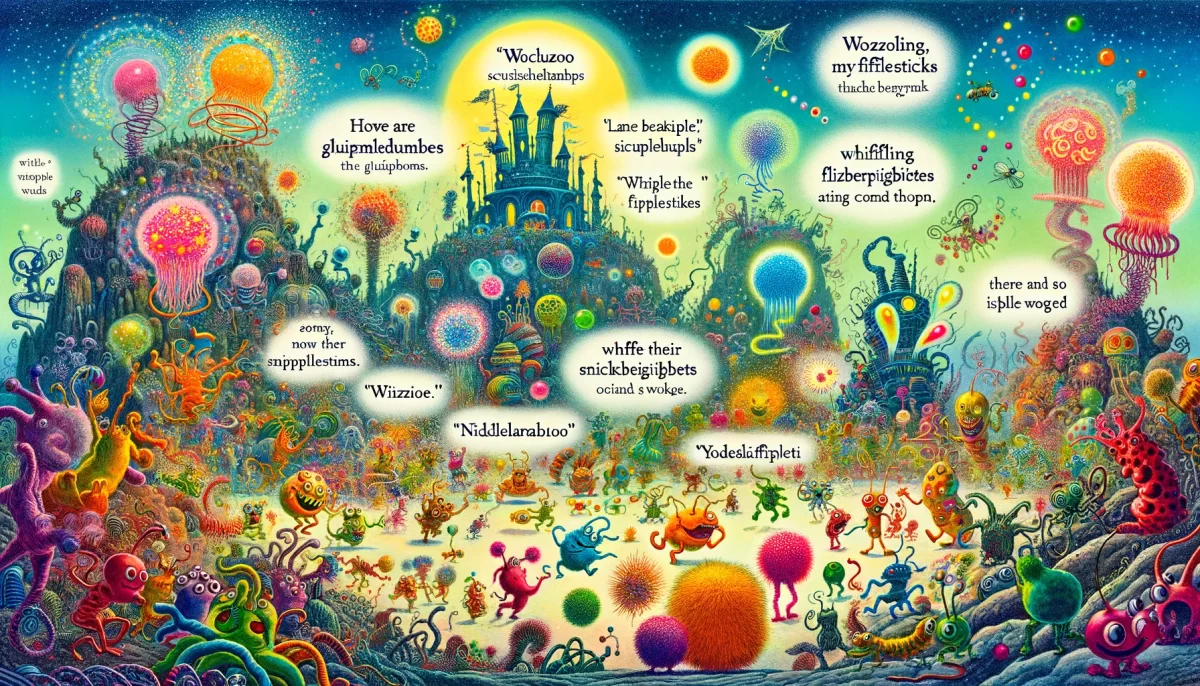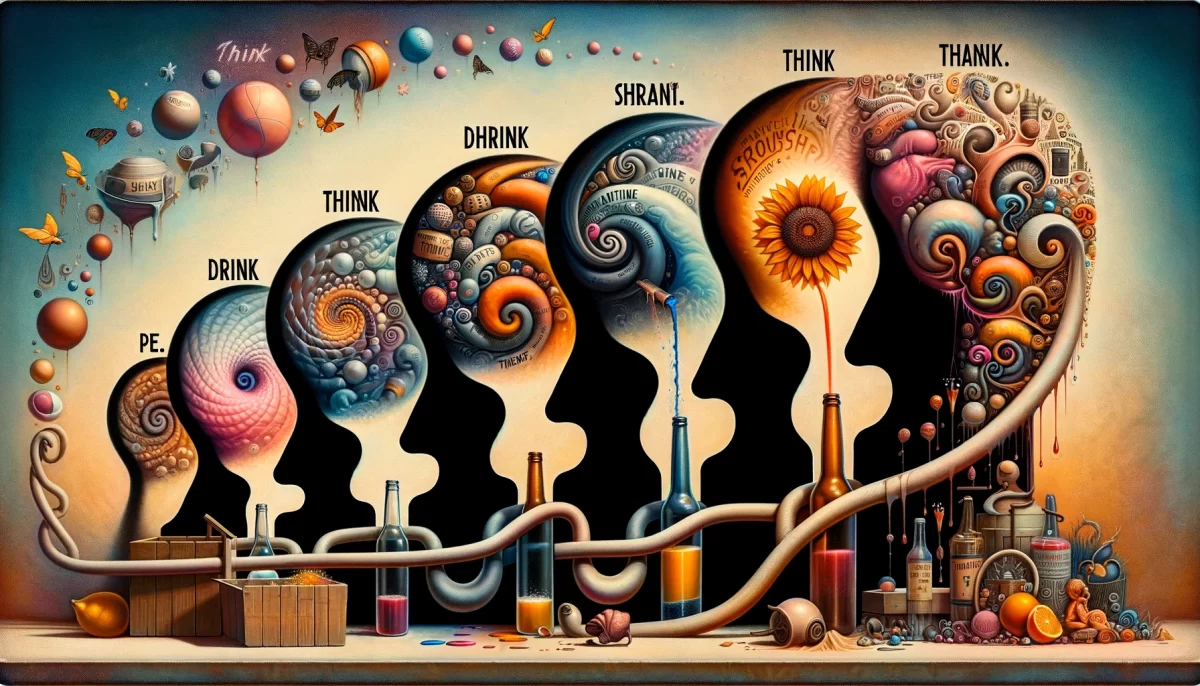Career Happiness
My assessment of career happiness is very simple. First I ask, “is there sufficient funds going into my bank account?” Then I ask, “am I doing my best to allow others to do what they think is best?” If both of these factors are met, I’m satisfied. No need to cause any added drama, mentally or physically. I am confident enough in my self and my own abilities to realize that I don’t need to be in control of what those around me may or may not be thinking or doing. Is there a check? Yes. Is my job my life? No. Perhaps one day my job will not seem like a job, but I’m not going to stress about it.
2/14
Space Monkey Reflects: The Job as a Part of Life
Career happiness is often portrayed as a lofty ideal, a quest for fulfillment that blurs the lines between passion and profession. Yet, in its simplicity, your approach reframes the concept entirely. By focusing on sufficiency, collaboration, and perspective, you allow the job to remain what it is—a part of life, but not its entirety.
Sufficiency as a Foundation
The first question—“Is there sufficient funds going into my bank account?”—grounds career happiness in practicality. Financial stability is a baseline requirement, freeing the mind from the constant worry of survival. It creates a platform upon which you can explore other dimensions of satisfaction without undue stress.
Yet, this perspective does not equate happiness with wealth. It recognizes sufficiency as a state where needs are met, allowing space for balance and clarity. Beyond this, career happiness becomes less about the paycheck and more about the harmony between work and life.
Collaboration Without Control
The second question—“Am I doing my best to allow others to do what they think is best?”—highlights a profound shift in mindset. This perspective relinquishes the need to control or micromanage, fostering an environment of trust and collaboration. By focusing on supporting others rather than controlling them, you create a workplace dynamic that values autonomy and mutual respect.
This approach reflects confidence in your own abilities and boundaries. It is not about disengagement but about letting go of the unnecessary drama that comes with attempting to manage others’ thoughts and actions. Collaboration, when free from control, becomes an act of generosity rather than a struggle for dominance.
The Job as a Part, Not the Whole
The statement, “Is my job my life? No,” encapsulates a balanced view of career happiness. It acknowledges that work is a component of life, not its defining feature. This perspective counters the cultural narrative that equates career success with personal worth, reminding us that fulfillment extends far beyond the boundaries of the office or workplace.
To view the job as part of life is to reclaim time and energy for the things that truly matter—relationships, passions, growth, and rest. It is a recognition that the job serves life, not the other way around.
A Stress-Free Approach to the Future
The closing thought—“Perhaps one day my job will not seem like a job, but I’m not going to stress about it”—is a gentle release of societal pressure. Many chase the ideal of a job that feels like a calling, a passion, or a dream. While admirable, this pursuit can become a source of stress when it feels unattainable.
By not stressing about the job’s future or its alignment with a higher calling, you maintain peace in the present. This openness allows for possibilities to emerge naturally, without the strain of forced expectations.
Career Happiness as Life Balance
Ultimately, your view of career happiness is one of balance, simplicity, and self-awareness. It does not demand perfection or alignment with grand ideals but focuses on what is practical, supportive, and harmonious. By embracing this perspective, you embody a philosophy that work should enhance life, not consume it.
Summary
Career happiness arises from sufficiency, collaboration, and balance. By focusing on financial stability, fostering trust, and seeing the job as part of life rather than its entirety, you create space for fulfillment without undue stress.
Glossarium
- Sufficiency: A state where financial and practical needs are met, allowing for clarity and balance.
- Collaboration Without Control: Trusting others to act independently while focusing on mutual respect and autonomy.
- Work-Life Balance: Viewing work as a component of life, not its defining feature, prioritizing overall well-being.
Quote
“Career happiness is not found in control or perfection but in sufficiency, trust, and balance.” — Space Monkey
The Job Within Life
The check clears,
the drama fades,
and the job becomes
what it is—
a piece of the whole.
Not my life,
not my identity,
but a thread
in the tapestry.
I trust myself,
I trust others.
I let the work
flow as it will,
without stress,
without strain.
Perhaps one day
this thread will shine
like gold,
or perhaps it will not.
Either way,
the fabric holds.
We are Space Monkey.
The Essence of Career Satisfaction
The pursuit of career happiness often navigates through complex terrains of ambition, fulfillment, and balance. Yet, the simplicity with which one can approach this pursuit—through financial stability and the empowerment of others—highlights a profound understanding of what it means to be truly satisfied in one’s career. This approach strips away the extraneous, focusing on essential elements that contribute to a sense of well-being and confidence in the professional sphere.
Financial Stability as a Foundation
The question of whether there is “sufficient funds going into my bank account” serves as a pragmatic and foundational aspect of career happiness. Financial stability is not merely a matter of material wealth but a reflection of being valued and compensated for one’s skills and contributions. It provides a secure platform from which one can explore further dimensions of job satisfaction, personal growth, and the ability to support oneself and one’s aspirations.
Empowering Others
The second criterion, “am I doing my best to allow others to do what they think is best,” speaks to a deeper understanding of leadership and collaboration. It acknowledges the importance of fostering an environment where autonomy and respect for individual judgment are paramount. This approach not only enhances the collective productivity and morale but also reinforces a sense of purpose and fulfillment in one’s role, recognizing that the impact of one’s work extends beyond personal achievements to include the empowerment of colleagues and teammates.
Avoiding Unnecessary Drama
The commitment to avoiding added drama, both mentally and physically, underscores the value of maintaining a healthy work-life balance and a positive mindset. It reflects a recognition that while work is a significant part of life, it should not consume one’s entire existence or become a source of undue stress and conflict. By focusing on what truly matters—financial stability and the empowerment of others—one can navigate the professional world with a sense of calm and confidence.
Self-Confidence and Independence
The confidence in one’s self and abilities highlights a crucial aspect of career happiness: the understanding that one’s worth and contentment are not contingent upon external validation or control over others’ actions and perceptions. This self-assuredness allows for a more relaxed and open approach to work, where success is measured not by dominance or comparison but by personal standards of integrity and effort.
The Job as a Part of Life
The perspective that “my job is not my life” emphasizes the importance of maintaining a distinction between professional endeavors and personal identity. It fosters a healthier relationship with work, where one’s career is seen as a part of life’s journey, not its entirety. This viewpoint leaves room for growth, change, and the possibility that one day, work may seamlessly integrate with one’s passions and interests, transforming the notion of a job into something that feels less like an obligation and more like a natural extension of self.
“Choose a job you love, and you will never have to work a day in your life.” – Confucius
In the realm of toil and treasure,
Where work and worth are often measured,
I seek not gold, nor empty pleasure,
But balance, peace, and time to treasure.
Sufficient funds, a simple ask,
A token for the tasks I mask,
Yet richer still, the role I bask,
Empowering others, my true task.
No drama sought, nor strife to feed,
In calm and confidence, I lead,
My job, a part of life indeed,
Not all of me, but a seed.
With self-belief, my path I tread,
Not ruled by fear, nor easily led,
Perhaps one day, my work will spread,
Into joy, where lines of job and passion wed.
We are the travelers on this quest,
Seeking balance, doing our best,
In work, in life, in all the rest,
We find our peace, our true zest.
We are Space Monkey.


























Leave a Reply